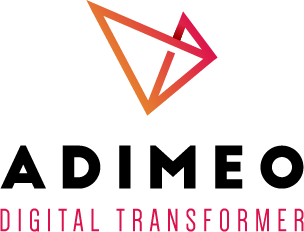Understanding the Travel and Tourism Sector: A Business Perspective

The world of business is inextricably linked with the realm of travel and tourism. From corporate travel arrangements to the operation of hospitality giants, this sector plays a pivotal role in the global economy.
The travel and tourism industry is not merely about vacations and leisure; it encompasses a diverse array of activities, services, and businesses that fuel economies, create jobs, and shape the way we explore the world.
In this article, we will embark on a journey to understand the intricacies of the travel and tourism sector from a business standpoint. We will explore its significance in the global economy, delve into the core components of the industry, examine the economic impact, and discuss emerging trends and challenges.
Moreover, we will shed light on the business aspects of travel, highlighting the key players, revenue streams, and marketing strategies that drive success.
But why should business professionals, beyond those directly involved in tourism, care about this sector? The answer lies in the fact that travel and tourism intersect with nearly every industry. Whether you’re in finance, technology, healthcare, or any other field, understanding how this sector operates can unlock opportunities for growth, collaboration, and innovation.
So, fasten your seatbelts and prepare for a journey through the multifaceted world of travel and tourism, where business meets exploration and economic growth meets wanderlust.

Travel and Tourism
Travel and tourism refer to the activities, services, and industries associated with people traveling to and staying in places outside their usual place of residence for leisure, business, or other purposes.
The Core Components of Travel and Tourism
At its heart, the travel and tourism sector comprises several key components, each playing a unique role in the industry’s ecosystem. Understanding these components is crucial for any business professional aiming to navigate this dynamic sector effectively.
Here are the primary elements:
1. Accommodation: Accommodation providers are the backbone of the tourism industry. They include hotels, resorts, vacation rentals, and even unconventional options like Airbnb. These establishments cater to travelers by offering a place to stay, ranging from budget to luxury.
2. Transportation: Travel relies heavily on transportation. This segment encompasses airlines, cruise lines, railways, car rental services, and public transportation systems. Efficient transportation networks are vital for connecting travelers to their destinations.
3. Food and Beverage: Dining experiences are an integral part of any trip. This category includes restaurants, cafes, food trucks, and bars. Culinary tourism, where travelers explore local cuisine, has become a significant trend within this segment.
4. Travel Agencies: Travel agencies and tour operators serve as intermediaries between travelers and service providers. They help plan itineraries, book accommodations, and arrange transportation, making the travel process more convenient.
5. Attractions and Entertainment: Tourist destinations offer various attractions, from historical sites and museums to theme parks and natural wonders. Entertainment options such as theaters and music venues also contribute to the overall travel experience.
6. Travel Technology: In the digital age, technology has transformed the way people plan and experience travel. Online booking platforms, travel apps, and services like TripAdvisor have reshaped the industry’s landscape.
7. Tourism Services: This category includes a range of services such as travel insurance, currency exchange, and visa assistance. These services ensure that travelers are prepared for their journeys and can navigate any unforeseen challenges.
8. Destination Management: Local governments and organizations play a pivotal role in managing and promoting tourist destinations. They invest in infrastructure, marketing, and sustainability efforts to attract visitors.
The Economic Impact of Travel and Tourism
From a business perspective, it’s essential to grasp the significant economic impact of the travel and tourism sector. This industry is a global economic powerhouse that generates jobs, fosters investment and drives economic growth.
Here are some key statistics to illustrate the significance of travel and tourism :
- Job Creation: Travel and tourism directly support over 330 million jobs worldwide, accounting for 1 in 10 jobs globally.
- Contribution to GDP: In 2022, the travel and tourism sector contributed 7.6% to global GDP, highlighting its substantial economic footprint.
- Investment Magnet: This sector attracts investments in infrastructure, hotels, transportation, and more, further stimulating economic activity.
- Foreign Exchange Earnings: Tourism often serves as a vital source of foreign exchange earnings for many countries, boosting their balance of payments.
- SME Growth: Small and medium-sized enterprises (SMEs) play a significant role in the sector, benefiting from the opportunities created by tourism-related businesses.
The economic interplay between tourism and other industries is intricate.
For instance, the hospitality sector relies on agriculture for food supplies, airlines depend on the aerospace industry for aircraft and tourist destinations often collaborate with local artisans and businesses to promote cultural experiences.
In the business world, recognizing the economic clout of travel and tourism can open doors for collaboration, investment, and innovation. Many companies, even those seemingly unrelated to tourism, can find ways to tap into this lucrative market.
Emerging Trends and Challenges
The travel and tourism sector is continuously evolving, driven by changing consumer preferences, technological advancements, and global events. Business professionals must stay attuned to these trends and challenges to adapt and thrive in this dynamic industry.
Here are some notable developments:
1. Sustainable Tourism: Travelers increasingly prioritize eco-friendly and sustainable practices. Businesses that adopt green initiatives not only reduce their environmental footprint but also attract environmentally conscious travelers.
2. Digital Transformation: The digitalization of travel services has reshaped how consumers plan and book trips. Online platforms, artificial intelligence, and data analytics are instrumental in personalizing travel experiences.
3. Health and Safety: Recent global health crises have heightened travelers’ concerns about safety and hygiene. Businesses must implement robust health and safety measures to regain consumer trust.
4. Shifts in Travel Behavior: The pandemic has brought about changes in travel behavior, with a focus on remote and nature-based destinations. Companies need to adapt their offerings to cater to these evolving preferences.
5. Regulatory Challenges: Navigating complex regulations, including visa requirements and health protocols, can be a challenge for travel businesses. Staying informed and compliant is crucial.
6. Geopolitical Factors: Political instability and international relations can significantly impact the tourism industry. Businesses must be prepared to adapt to changing geopolitical landscapes.
The Business of Travel and Tourism
Understanding how businesses operate within this sector is essential for both industry insiders and entrepreneurs looking to tap into this thriving market.
Role of Businesses in the Travel Sector
Businesses play a pivotal role in shaping the travel and tourism landscape. Whether you’re a hotel chain, an airline, a tour operator, or a travel agency, your role is multifaceted, encompassing everything from customer service to marketing and sustainability initiatives.
- Customer-Centric Approach : At the heart of every successful travel and tourism business is a deep commitment to customer satisfaction. Travelers today expect exceptional service and unique experiences. From the moment a traveler starts planning their trip to the time they return home, businesses must focus on providing top-notch services, personalized recommendations, and seamless experiences.
- Innovation and Adaptation : The travel industry is highly competitive and constantly evolving. Successful businesses in this sector are those that innovate and adapt to changing trends. This could mean embracing digital technology, offering eco-friendly options, or creating new and exciting travel packages.
Business Models and Revenue Streams
To thrive in the travel and tourism sector, businesses employ various revenue models tailored to their specific niches. Here are a few common business models:
- Hospitality and Accommodation : Hotels, resorts, and vacation rentals rely on room bookings and additional services such as dining, spa treatments, and event hosting to generate revenue.
- Airlines and Transportation : Airlines make money through ticket sales, baggage fees, in-flight services, and partnerships with other travel-related businesses. Transportation services like taxis, trains, and cruise lines have similar revenue structures.
- Tour Operators and Travel Agencies : These businesses profit from organizing and selling travel packages, tours, and experiences. Commissions, booking fees, and tour sales are primary income sources.
- Online Travel Agencies (OTAs) : OTAs like Expedia and Booking.com aggregate information from various travel service providers and earn commissions on bookings made through their platforms.
Customer Experience and Service Excellence
In the digital age, the travel and tourism sector is driven by customer reviews and recommendations. Travelers share their experiences online, influencing the choices of others. Therefore, providing exceptional customer service is paramount. Here are some strategies to achieve service excellence:
- Personalization : Tailor recommendations and services to individual preferences.
- Seamless Booking and Travel : Make the booking process simple and provide support throughout the journey.
- Feedback and Improvement : Collect customer feedback and use it to enhance services continually.
- Crisis Management : Be prepared to handle unexpected situations, such as flight cancellations or health emergencies, with professionalism and empathy.
Marketing and Promotion Strategies
Effective marketing is essential for attracting travelers to your business. Here are some strategies commonly used in the travel and tourism industry:
- Digital Marketing : Utilize online channels such as social media, search engine optimization (SEO), email marketing, and paid advertising to reach a global audience.
- Content Marketing : Create engaging content, including blog posts, videos, and travel guides, to inspire and inform potential travelers.
- Partnerships : Collaborate with influencers, other businesses, and tourism boards to expand your reach and access new markets.
- Sustainability Promotion : Highlight your commitment to sustainable and responsible travel practices, as eco-conscious travelers seek eco-friendly options.
The business of travel and tourism is a multifaceted realm that demands a relentless focus on customer satisfaction, innovation, and responsible practices.
Success in this sector requires a deep understanding of your niche, a commitment to service excellence, and strategic marketing efforts. As the travel industry continues to evolve, businesses that can adapt and offer unique, memorable experiences will undoubtedly thrive in this exciting and ever-changing market.
Key Players in the Travel and Tourism Industry
As we dive deeper into the business of travel and tourism, it’s crucial to recognize the key players that shape this industry. These players, ranging from airlines to accommodation providers and travel agencies, contribute to the diverse ecosystem of travel and tourism.
Understanding their roles and significance is essential for anyone interested in this dynamic sector.
Airlines and Aviation
Airlines are the lifelines of global travel. They provide the means for travelers to reach their destinations quickly and efficiently. Here’s an overview of their role in the industry:
- Passenger Transportation : Airlines transport millions of passengers daily, connecting cities and countries across the globe. They generate revenue through ticket sales, baggage fees, and in-flight services.
- Cargo Services : Airlines also play a pivotal role in transporting goods and cargo, contributing significantly to international trade and logistics.
- Global Networks : Major airlines operate extensive global networks, allowing travelers to reach virtually any corner of the world.
Hotel Chains and Accommodation Providers
The hospitality sector, including hotels, resorts, and vacation rentals, is another cornerstone of the travel and tourism industry. Here’s how they contribute:
- Lodging : These businesses offer lodging options, from budget-friendly to luxury, catering to diverse traveler preferences.
- Dining and Services : Many hotels provide dining options, spa services, event hosting, and recreational facilities, enhancing the guest experience and generating additional revenue.
- Destination Attraction : Iconic hotels and resorts often become attractions in themselves, drawing travelers to specific destinations.
Tour Operators and Travel Agencies
Tour operators and travel agencies specialize in creating and selling travel packages and experiences. Their roles include:
- Curating Experiences : They design itineraries and packages that offer unique and immersive travel experiences, from adventure tours to cultural excursions.
- Booking and Logistics : These businesses handle the logistics of travel, including accommodations, transportation, and activities, streamlining the process for travelers.
- Expertise : Tour operators and travel agencies provide expert guidance, helping travelers navigate complex travel decisions.
Destination Management Companies
Destination management companies (DMCs) focus on specific regions or destinations. Their roles encompass:
- Local Expertise : DMCs have in-depth knowledge of their respective destinations, enabling them to offer specialized services and experiences.
- Customized Services : They work closely with travel planners and agencies to tailor experiences for groups and individuals.
- Sustainability : DMCs often play a vital role in promoting responsible tourism practices within their destinations.
Online Travel Agencies (OTAs)
Online travel agencies have become a dominant force in the industry, leveraging digital platforms to connect travelers with various travel services. Here’s what they do:
- Aggregation : OTAs aggregate information from airlines, hotels, and other travel service providers, offering a wide array of choices to travelers.
- Booking Platforms : They provide convenient booking platforms, allowing travelers to book flights, accommodations, and more in one place.
- Reviews and Recommendations : OTAs often feature user reviews and recommendations, influencing traveler decisions.
Understanding the roles of these key players in the travel and tourism industry is essential for anyone considering entering this sector.
Each player contributes uniquely to the travel experience, from transportation to accommodation and beyond. Successful businesses often collaborate with multiple stakeholders to offer comprehensive and memorable travel experiences to their customers.
Travel and Tourism Post-COVID-19
The travel and tourism industry, like many others, faced unprecedented challenges during the COVID-19 pandemic. Lockdowns, travel restrictions, and health concerns brought international travel to a standstill. However, the industry has displayed remarkable resilience and adaptability.
Let’s explore how the sector is recovering and adapting in a post-pandemic world.
Impact of the Pandemic on the Industry
- Travel Restrictions : Stringent travel restrictions, including border closures and quarantine requirements, severely impacted international travel. Airlines faced a sharp decline in passenger numbers.
- Hospitality Struggles : Hotels and accommodation providers experienced a dramatic drop in occupancy rates. Many temporarily closed or adapted to offer quarantine and isolation services.
- Cruise Industry Challenges : Cruise lines faced significant setbacks due to onboard outbreaks. The industry had to reimagine health and safety protocols.
- Shift to Domestic Travel : With international travel restrictions, many travelers turned to domestic and regional destinations, boosting local tourism.
- Digital Transformation : The pandemic accelerated the adoption of digital technologies for contactless bookings, health monitoring, and communication.
Recovery and Adaptation Strategies
The travel and tourism industry is rebounding, thanks to a combination of factors:
- Vaccination Campaigns : Widespread vaccination campaigns have increased traveler confidence, making international travel safer.
- Health and Safety Protocols : Airlines, hotels, and other businesses have implemented robust health and safety measures to reassure travelers.
- Flexible Booking Policies : Many travel companies introduced flexible booking and cancellation policies to accommodate changing travel plans.
- Sustainability Focus : There’s a growing emphasis on sustainable and responsible tourism, with businesses integrating eco-friendly practices.
- Digitalization : The industry continues to embrace digital technologies, offering contactless experiences and personalized services.
- Collaboration : Stakeholders across the industry are collaborating to rebuild and promote destinations.
Future Outlook and Resilience
The travel and tourism industry is poised for recovery and growth in the coming years. Here’s what the future may hold:
- Pent-Up Demand : Many travelers postponed their plans during the pandemic, leading to pent-up demand for leisure and business travel.
- Sustainable Travel : Sustainable and eco-conscious travel is gaining momentum. Travelers are increasingly choosing destinations and businesses committed to environmental responsibility.
- Tech Integration : Technology will continue to play a significant role, with advancements in AI, mobile apps, and data analytics enhancing the travel experience.
- Health and Safety : Health and safety measures will remain a priority, with businesses maintaining rigorous protocols.
- Remote Work and Travel : Remote work trends may encourage a blend of work and leisure travel, with more extended stays in diverse locations.
- Resilience Planning : The industry is developing resilience plans to better handle future crises and disruptions.
The travel and tourism industry’s ability to adapt and innovate in the face of adversity demonstrates its resilience. As it recovers and evolves, it offers promising opportunities for businesses and travelers alike.
The key to success lies in embracing change, prioritizing safety, and delivering exceptional experiences that meet the evolving needs of travelers in a changing world.
Sustainable Tourism and Responsible Business Practices
In a world increasingly concerned about the environment and social responsibility, the travel and tourism industry is under scrutiny to adopt more sustainable and responsible practices.
Let’s delve into the importance of sustainable tourism and how businesses can contribute to a greener and more ethical travel sector.
Environmental and Social Responsibility
- Reducing Carbon Footprint : The travel industry is a significant contributor to greenhouse gas emissions. Airlines, for example, are exploring biofuels and more fuel-efficient aircraft to reduce their carbon footprint.
- Preserving Natural Resources : Eco-conscious travelers seek destinations that protect and preserve natural resources. Businesses can contribute by implementing eco-friendly initiatives like energy-efficient facilities and waste reduction programs.
- Conservation Efforts : Supporting local conservation projects and wildlife protection initiatives can be a part of responsible tourism. This can involve financial contributions or active participation.
- Respecting Local Cultures : Responsible tourism respects and celebrates local cultures and traditions. It involves engaging with local communities in a respectful and sustainable manner.
- Community Involvement : Businesses can support the communities they operate in through job creation, fair wages, and community development projects.
Sustainable Tourism Certifications and Initiatives
- Eco-Certifications : Numerous certifications, such as EarthCheck and Green Key , help businesses showcase their commitment to sustainability. These certifications often involve rigorous audits of a company’s environmental practices.
- Zero-Waste Initiatives : Some hotels and resorts aim to become zero-waste establishments, recycling and repurposing nearly all their waste.
- Wildlife Conservation : Tour operators and businesses can partner with wildlife conservation organizations to promote ethical wildlife experiences.
- Local Sourcing : Restaurants and hotels can prioritize local sourcing of food and materials, reducing transportation-related carbon emissions.
- Plastic Reduction : Many businesses are eliminating single-use plastics and opting for sustainable alternatives.
Benefits of Responsible Tourism for Businesses
- Competitive Advantage : Travelers increasingly seek sustainable and responsible options. Businesses that embrace these practices gain a competitive edge.
- Cost Savings : Sustainable practices often lead to cost savings through reduced energy and resource consumption.
- Enhanced Reputation : Businesses committed to responsible tourism build a positive reputation and attract like-minded customers.
- Legal Compliance : Adhering to eco-friendly and ethical standards ensures compliance with evolving environmental and social regulations.
- Long-Term Viability : By protecting the environment and supporting local communities, businesses contribute to the long-term viability of their destinations.
- Guest Satisfaction : Eco-conscious travelers appreciate businesses that share their values, leading to higher guest satisfaction and loyalty.
The travel and tourism sector’s future hinges on sustainable and responsible practices. Businesses that prioritize environmental and social responsibility not only contribute to a healthier planet but also position themselves for long-term success in an industry undergoing profound changes.
As a business professional, understanding and adopting these practices can be a strategic advantage in a world where ethical considerations increasingly influence consumer choices.
Hostile Takeovers
In a hostile takeover, the acquiring company pursues the target company despite the target’s resistance. Hostile takeovers often involve aggressive tactics, such as tender offers directly to shareholders or attempts to replace the target’s board of directors.
Case Studies: Successful Businesses in Travel and Tourism
To gain deeper insights into the strategies and approaches that have propelled certain businesses to success in the travel and tourism sector, let’s examine a few notable case studies.
These examples showcase how innovation, adaptability, and a customer-centric approach can make a significant impact in this dynamic industry.
Airbnb: Revolutionizing Accommodation
Airbnb, founded in 2008, has transformed the hospitality sector. This online marketplace connects travelers with unique accommodations offered by hosts worldwide. What sets Airbnb apart?
Key Success Factors:
- Platform Model : Airbnb operates as a platform, allowing hosts to list their properties and travelers to book them. This asset-light model means Airbnb doesn’t own properties, reducing capital requirements.
- User Reviews : User-generated reviews and ratings build trust among users. Travelers can make informed choices based on the experiences of previous guests.
- Personalization : Airbnb’s recommendation engine suggests accommodations based on user preferences, enhancing the customer experience.
- Diverse Offerings : From treehouses to castles, Airbnb offers a wide range of unique accommodations, appealing to travelers seeking authentic experiences.
- Host Community : Airbnb invests in building a strong host community, providing support and resources to hosts.

Cross-Border Mergers and Acquisitions: Global Expansion
Cross-border M&A transactions involve companies from different countries coming together. These deals offer opportunities for global expansion but also present unique challenges.
Booking.com: Data-Driven Booking
Booking.com, founded in 1996, is a global online travel agency. It leverages technology and data to simplify travel booking.
- Vast Inventory : Booking.com offers a wide range of accommodation options, from hotels to vacation rentals. This extensive inventory caters to diverse traveler preferences.
- User Experience : The platform’s user-friendly interface and transparent booking process contribute to its popularity.
- Data Analytics : Booking.com uses data analytics to understand traveler behavior, enabling personalized recommendations and pricing strategies.
- Global Reach : With a presence in over 220 countries and territories, Booking.com serves a global audience.
- Instant Confirmation : Providing real-time booking confirmation enhances the customer experience.

Delta Air Lines: Customer-Centric Air Travel
Delta Air Lines, a major U.S. carrier founded in 1924, is known for its customer-centric approach.
- Reliability : Delta prioritizes operational reliability, minimizing flight cancellations and delays.
- Fleet Upgrades : Investing in a modern and efficient fleet enhances the passenger experience and reduces operating costs.
- Customer Service : Delta emphasizes excellent customer service, and its efforts are reflected in high customer satisfaction ratings.
- Global Alliances : Participation in global airline alliances expands route networks and offers travelers more choices.
- Innovation : Delta embraces innovation, introducing features like biometric boarding and in-flight entertainment options.

These case studies highlight the diverse strategies and approaches that have driven success in the travel and tourism sector. From disruptive online marketplaces to data-driven booking platforms and customer-centric airlines, businesses that prioritize innovation, customer experience, and adaptability are well-positioned for growth.
By studying these examples, business professionals can gain valuable insights into the industry’s evolving landscape and identify opportunities to innovate and excel in their own travel and tourism endeavors.
Lessons Learned from Industry Leaders
The travel and tourism sector offers a treasure trove of lessons for business professionals across various industries. Let’s distill some key takeaways from the successes and innovations of industry leaders:
1. Customer-Centricity Is Paramount
Whether you’re running an airline, hotel, or travel agency, prioritizing the customer experience is non-negotiable. Happy and satisfied customers become loyal patrons and brand advocates. Invest in personalized services, efficient booking processes, and responsive customer support.
2. Embrace Technology and Data
Technology is a game-changer in the travel industry. From data analytics that inform pricing strategies to mobile apps that enhance on-the-go experiences, leveraging technology can set your business apart. Be open to adopting new tools and systems that improve efficiency and customer satisfaction.
3. Diversity and Choice Matter
Offering a diverse range of products or services can attract a broader audience. In the travel sector, this means providing various accommodation types, transportation options, and tour packages. Embrace diversity to meet the unique preferences of your customers.
4. Transparency Builds Trust
Transparency in pricing, policies, and terms and conditions builds trust with customers. Hidden fees and ambiguous policies can lead to dissatisfaction. Clear communication and honesty go a long way in establishing credibility.
5. Sustainability Is the Future
Sustainability and responsible tourism are becoming central to the industry’s ethos. Travelers are increasingly conscious of their environmental impact. Consider eco-friendly practices and promote responsible tourism. It’s not only good for the planet but also a selling point for your business.
6. Innovate or Stagnate
Innovation is the lifeblood of the travel and tourism sector. Whether it’s introducing new services, improving efficiency, or enhancing the customer journey, staying ahead requires a commitment to innovation. Monitor industry trends and be open to creative solutions.
7. Globalization Expands Reach
Participating in global networks and alliances can expand your business’s reach. Collaborate with international partners to offer customers a wider range of options. Globalization also provides resilience in the face of economic fluctuations.
8. Resilience Is Crucial
The industry has weathered numerous storms, from economic crises to health emergencies. Building resilience into your business plans, such as having contingency measures for crises, is essential. Flexibility and adaptability are key.
9. Community and Culture Matter
Embrace the culture and communities where your business operates. Engage with local communities, respect their traditions, and contribute positively. This fosters goodwill and can lead to meaningful partnerships.
10. Continuous Learning Is a Competitive Advantage
The travel and tourism sector is ever-evolving. Continuous learning and staying informed about industry trends and regulations are essential. Attend conferences, workshops, and industry events to network and gain insights.
Incorporating these lessons into your business strategy can set you on a path to success in the dynamic and rewarding world of travel and tourism. By combining innovation, customer focus, and a commitment to sustainability, you can thrive in an industry that promises new horizons and unforgettable experiences for travelers worldwide.
The travel and tourism sector represents a dynamic and resilient industry with a significant impact on the global economy. As a business professional, understanding the nuances and opportunities within this sector is paramount. In this comprehensive guide, we’ve explored the multifaceted world of travel and tourism, delving into its significance, components, trends, and challenges.
We’ve seen how the industry intersects with business, offering a wide array of opportunities for entrepreneurs and established enterprises alike. Whether you’re considering venturing into travel-related ventures or seeking to enhance an existing business through tourism, the sector holds immense potential.
Key takeaways from this exploration include:
- The Economic Powerhouse : Travel and tourism contribute significantly to GDP, job creation, and foreign exchange earnings in many countries. This sector’s resilience is evident through its ability to rebound from crises.
- Diverse Components : The industry encompasses hospitality, transportation, attractions, travel services, and more, creating a rich tapestry of business opportunities.
- Trends and Challenges : Emerging trends like sustainable tourism and digital transformation offer avenues for innovation. Yet, challenges such as health concerns and environmental responsibility must be addressed.
- The Business of Tourism : Customer-centricity, technology adoption, transparency, and sustainability are vital principles for success in this sector.
- Key Players : Airlines, hotel chains, tour operators, and online travel agencies are among the key players shaping the industry’s landscape.
- Post-COVID-19 Era : The pandemic prompted significant shifts in travel behavior. Recovery strategies and adaptability are critical for businesses in the post-COVID-19 world.
- Sustainable Tourism : Responsible practices not only benefit the environment but also appeal to conscious travelers and can drive business success.
- Lessons from Industry Leaders : Customer-centricity, innovation, transparency, and resilience are valuable takeaways from successful travel and tourism businesses.
As the world evolves, so do the travel and tourism opportunities. By staying informed, embracing innovation, and aligning with sustainability, you can position your business for success in an industry that promises both profitability and the chance to create unforgettable experiences for travelers around the globe.
Now, armed with insights from this guide, you’re better equipped to navigate the exciting and ever-changing world of travel and tourism, contributing to its growth and shaping its future. Bon voyage!
- United Nations World Tourism Organization (UNWTO). (2022). Tourism Highlights 2022 Edition. Link
- World Travel & Tourism Council (WTTC). (2022). Economic Impact Reports. Link
- International Air Transport Association (IATA). (2022). IATA Economics. Link
- Deloitte. (2022). Travel, Hospitality, and Leisure Reports. Link
- Statista. (2022). Statistics and Market Data on Travel and Tourism. Link
- McKinsey & Company. (2022). Travel, Logistics & Transport Infrastructure. Link
- Booking.com. (2023). Link
- TripAdvisor. (2023). GreenLeaders. Link
- The New York Times. (2023). Travel and Tourism. Link
- National Geographic. (2023). Sustainable Travel. Link
- The World Bank. (2023). Tourism. Link
- World Tourism Organization (2022). Global Code of Ethics for Tourism. Link
Tumisang Bogwasi
2X Award-Winning Entrepreneur | Empowering Brands to Generate Leads, Grow Revenue with Business Strategy and Digital Marketing | Founder, CEO of Fine Group

Destination
Strategic Planning
Bringing the diverse range of tourism entities together to
maximize destination performance.

Our role in the visitor industry
For over 25 years, the professionals of Nichols Tourism Group have assisted destinations in building and implementing strategies that help maximize their attraction potential. Whether in the public or private sector, the challenge is often the same, how does a destination or attraction effectively compete in the continually changing visitor marketplace.
Let us help you in your destination journey!

Since 1995, Nichols Tourism Group, Inc. (NTG) has been positioned as a national leader in providing strategic planning, product development and research services to the travel and tourism industry. While many firms bring either a pure marketing or strict analytical focus to tourism consulting, NTG combines both to create innovative, balanced and practical approaches that help its clients capture an increasing share of the billions of dollars that are annually spent by travelers.
Our Services
Nichols Tourism Group provides an array of services to assist destinations in maximizing their attraction potential and enhancing the visitor experience.

Destination Strategic Planning

Applying Sustainability Practices

Advocacy Building the Case

Destination Architect Planning

Resident Quality of Life Assessment

Visitor Center Advisory

Recent Project Initiatives

Grand County and Moab, UT

Florida’s Sports Coast, FL

Fredericksburg, TX

Park City, UT

Travel Nevada

Get in touch
Thanks for submitting!
Solutions Directory
Browse all partners.

InboundCycle
InboundCycle, a global HubSpot implementation and integration provider with over 10 years of…

Black & Orange 🇺🇸 🇲🇽 🇨🇦
We are more than an Inbound Agency. We're Inbound Business Growth Consultants with more than 400…

By always following a performance based strategy, our objective is to improve your results. Tell us…

konzepthaus Web Solutions GmbH
HubSpot Implementierung, Individualisierung und Integration in bestehende Unternehmensstrukturen/-pr…

Kongo Industries
At Kongo, we partner with middle market businesses looking to acquire and nurture more high quality…
-1.png)
Ideagency - Conseil & Intégration HubSpot
OPTIMISEZ VOS STRATÉGIES & VOS OPÉRATIONS, POUR DÉVELOPPER VOTRE BUSINESS ! Nous vous accompagnons …

We are a tech partner specialized in optimizing operations. We help you fine-tune your company's…

Angelfish Marketing
Angelfish Marketing is an inbound marketing agency helping marketing professionals and…

Discover the power of automation with our award-winning agency, boasting over 15 years of expertise…

Girikon Inc
Girikon is a global leader in end-to-end HubSpot implementation, catering to diverse industries…

Market leading digital partner within results-based marketing and websites. We love CRM and helping…

PIXL GROUP DMCC
A group of creative forward-thinkers, who use strategy, imagination and progressive technology to…

Velocity Media
We are not your typical creative-inbound-digital-marketing agency. We create opportunities to…

webdew 🇺🇸 🇨🇦 🇮🇳
webdew Labs Inc. is a Diamond partner agency headquartered in Vancouver with operations in India.…

Glare Marketing Technology
We founded Glare Marketing, a boutique agency, to leverage our technology and marketing backgrounds…

W4 Marketing AG
Are you looking for a partner who also has a deep technical understanding? Then we are the right…

Diaz & Cooper Advertising
We help you unleash the power of HubSpot and operationalize your revenue engine to achieve…

Chili Digital AG
ChiliDigital AG is a HubSpot Diamond Solution Partner and accredited integration partner. We…

PERFORMARS | Growth solution company
PERFORMARS is an authentic end-to-end marketing value partner leading our clients to transformative…

Dotsquares Ltd.
For over 22 years, Dotsquares has been a global leader in providing comprehensive IT solutions,…

En Opres Media, celebramos una década de innovación y éxito, marcando el camino en el sector del…

Blue Nose - INBOUND SMARTAGENCY
Inbound enfocado a los resultados de Negocio. Presentes en mas de 7 países, diseñamos soluciones es…

The Diamond Group
HubSpot is more than just a CRM. It's a powerful platform that can transform your business. We'll…

829 Studios
829 Studios is an integrated marketing agency that delivers measurable results through thoughtful…

BUILDING DIGITAL LEADERS: OMMAX is a fast-growing digital strategy consultancy in Europe,…

UP There Everywhere
UP THERE, EVERYWHERE is the world’s first global cloud-based agency. We work with Branding,…

Search Influence
A national digital marketing agency, Search Influence routinely delivers a 10:1 return on…

Red Pegasus Group Ltd
We are a modern, tech savvy sales consultancy business, we are passionate about helping others and…

‘Game-changing’ this. ‘Data-driven’ that. All the hyphens and hype in the world won’t make your bus…

Signos > Growth Marketing X10
En Signos, creemos en el poder del marketing digital para impulsar tu éxito. No importa el tamaño d…


one medialis GmbH
Wir sind die Agentur für Ihre digitalisierte Zukunft. Wir wollen Sie zu unserem Fan machen, indem…

Driving innovations to engage your customers and help companies grow their business. …

Ariadna Communications Group
Antes, había dos mundos paralelos: el mundo offline y el mundo online. La comunicación entre los…

Phocus Direct Communication GmbH (Germany)
Die Kennzahl im modernen Marketing lautet Umsatz, nicht nur Leads Unsere B2B-Agentur ist in der Lag…

Enchant Agency
Enchant is a London-based email marketing agency. We enable brands to get email right. Our clients…

Alea è una Digital Agency specializzata in progetti di Inbound Marketing - sia B2B che B2C - che…

We Make Nordic Business Smarter and help set you up for success with HubSpot. Hubit is the EMEA…

Depuis plus de 18 ans, Adimeo s'impose comme un partenaire de confiance pour les entreprises en…
-1.png)
Growth Room - Agence Hubspot
Growth Room est une agence d’experts en Growth Marketing qui pense et exécute des stratégies de…

Latigid is a full inbound marketing agency, focusing on delivering client growth in the Education,…

SocialCities s.r.l.
SocialCities è il partner ideale per la tua trasformazione digitale, combinando un'approfondita…

WhiteHat is a full Inbound Marketing services agency in Athens, Greece. We are passionate in…

Vi hjelper merkevarer med å vokse! Utbrudd er prisbelønte markedsførere, med spisskompetanse på str…

Bright Dials
Bright Dials is a specialist CRM and automation consultancy helping organisations create their best…

9H Digital | HubSpot Saudi, Qatar, UAE & Malta
9H Digital is a fully certified and award-winning HubSpot Partner with offices in Malta (EUROPE),…
Want to get listed here?
Sign up for a free HubSpot account to create your profile and get exposure to thousands of companies looking for help.
How does the Solutions Directory work?
Find a partner.
Browse the directory of partners or get targeted recommendations through our questionnaire
Start the conversation
Contact partners who interest you and learn more about their expertise
Get the job done
Accept the best proposal and get your project underway
What are Partner Tiers?
HubSpot solutions partners earn tiers based on the level of success they've achieved for their clients using the HubSpot platform. They're ranked from elite (highest honor) to gold. All other profiles are listed after our tiered partners. Profiles are ranked by review count as well as tier. Learn more about who can leave reviews in the directory
24 Top-Performing Travel and Tourism Corporations

The travel and tourism industry is a bustling market, encompassing a wide array of enterprises that offer both national and international travel services. This industry includes, but is not limited to, online marketplaces for short-term accommodations, hotel booking platforms, and comprehensive travel agencies that offer customizable holiday packages. Companies in this sector strive to provide a seamless experience for travelers, from booking the perfect lodging to planning an entire trip. As the world becomes increasingly digital, these companies are focusing on enhancing their online features and accessibility, creating interactive platforms to engage customers and meeting the demands of the modern-day traveler.
Top 24 Travel and Tourism Companies
- Website: airbnb.com
- Headquarters: San Francisco, California, United States
- Founded: 2007
- Headcount: 5001-10000
- Latest funding type: Ipo
Airbnb is an online marketplace and hospitality service that enables people to rent or lease short-term lodging including vacation rentals, apartment rentals, homestays, hostels, and hotel rooms.
- Website: hotels.com
- Headquarters: Dubai, Dubai, United Arab Emirates
- Founded: 1993
- Latest funding type: Acquired
Hotels.com is a leading online travel company that offers a wide range of hotel bookings and vacation rentals worldwide. They provide users with easy access to hotel discounts, cheap hotels, hotel rates, and hotel reservations. With a large inventory of accommodations and a user-friendly platform, Hotels.com is a trusted choice for travelers.
3. Thomas Cook India Limited
- Website: thomascook.in
- Headquarters: Mumbai, Maharashtra, India
- Founded: 1841
- Headcount: 1001-5000
Thomas Cook is a travel company that offers holiday packages and travel services. They provide customizable domestic and international tour packages, including honeymoon packages and adventure trips. Thomas Cook also offers currency exchange, travel insurance, visa services, and international money transfer.
4. TUI Nederland
- Website: tui.nl
- Headquarters: Rijswijk, Zuid-Holland, Netherlands
- Founded: 1995
TUI is a travel company offering a wide range of vacation packages, including flights, accommodations, and activities. They provide various options for different types of travelers and destinations.
5. Alpitour
- Website: alpitour.it
- Headquarters: Torino, Italia, Italy
- Founded: 1947
Alpitour is a trusted company that offers secure and guaranteed vacation packages. They provide inclusive travel insurance and 24/7 assistance for a worry-free trip. With destinations in Capo Verde, Messico, Repubblica Dominicana, Maldive, and Madagascar, Alpitour offers discounts and a variety of packages. They specialize in resorts and top-rated hotels worldwide. Alpitour also offers gluten-free options and a range of travel services, such as catalogs, rules for traveling, and insurance.
6. Travelocity
- Website: travelocity.com
- Headquarters: Dallas, Texas, United States
- Founded: 1996
- Headcount: 51-200
Travelocity.com is a travel booking platform that offers a wide range of services including hotel bookings, vacation rentals, vacation packages, domestic flights, car rentals, and travel blog. Customers can find unique places to stay and access special discounts and features. The company values privacy and offers support for booking cancellations and refunds.
- Website: orbitz.com
- Headquarters: Chicago, Illinois, United States
- Founded: 1999
Orbitz.com is an online travel agency that offers flights, hotels, rental cars, vacation packages, and activities at competitive prices.
- Website: sunsail.co.uk
- Headquarters: Surbiton, Surrey, United Kingdom
- Founded: 1974
- Headcount: 501-1000
Sunsail.co.uk is a company that offers yacht charter and sailing holidays. They provide bareboat and skippered sailing holidays in various destinations around the world. Their services include flotilla charters, sailing schools, and yacht ownership options. Customers can choose from a range of boats, including catamarans and monohulls. Sunsail.co.uk is a trusted and reliable provider of sailing vacations for individuals, families, and groups.
9. Teletext India Private Limited
- Website: teletextholidays.co.uk
- Headquarters: Hyderabad, Telangana, United Kingdom
- Founded: 1992
Teletext Holidays is a travel agency offering a wide range of holiday packages to various destinations. They provide customers with the opportunity to book all-inclusive, self-catering, and other types of holidays. With a user-friendly website and a mobile app, they aim to make the holiday booking process stress-free and convenient.
10. Panorama Leisure (PT Panorama Sentrawisata Tbk)
- Website: panorama-group.com
- Headquarters: West Jakarta, Jakarta Raya, Indonesia
- Founded: 1972
Panorama Group is an integrated tourism company that offers exceptional services to travelers exploring the world. They provide tour packages, transportation services, and hospitality solutions to make their customers' adventures convenient, enjoyable, and memorable.
11. The Moorings Yacht Charters
- Website: moorings.com
- Headquarters: Clearwater, Florida, United States
- Founded: 1969
The Moorings is a company that offers a variety of charter options for sailing and powerboat vacations in idyllic coastal regions worldwide. They provide sail yachts, catamarans, monohulls, and crewed yachts for charter, along with essential extras and skippered vacations. With their innovative fleet, industry-leading service, and stunning destinations, The Moorings ensures unforgettable yacht charter experiences.
12. Dream Yacht Charter
- Website: dreamyachtcharter.com
- Headquarters: Annapolis, Maryland, United States
- Founded: 2001
- Headcount: 201-500
Dream Yacht Charter is a leading company in the yacht charter industry, offering a wide range of sailing vacations to various destinations. They provide fully crewed and bareboat charters, as well as by the cabin charters. With a diverse fleet of monohulls and catamarans, customers can sail their dream vacation in the Caribbean, Europe, and other beautiful locations. Whether experienced or new to sailing, Dream Yacht Charter has options for everyone.
13. Pitchup.com
- Website: pitchup.com
- Headquarters: London, England, United Kingdom
- Founded: 2009
Pitchup.com is a website that offers a wide range of accommodation options for outdoor enthusiasts, including camping pods, caravans, and lodges. They have a vast selection of locations across various countries, providing a convenient platform for customers to find and book their ideal outdoor getaway.
14. Minar Travels (India) Pvt. Ltd.
- Website: minartravels.com
- Headquarters: New Delhi, New Delhi, India
Minar Travels is a travel company that has been providing unique and unforgettable experiences to travelers for over two and a half decades. With a commitment to excellence in every aspect, the company has earned numerous honors and accolades. Their goal is to create remarkable journeys and incredible experiences for their clients.
15. Berge & Meer Touristik GmbH
- Website: berge-meer.de
- Headquarters: Rengsdorf, Rheinland-Pfalz, Germany
Berge & Meer is a travel company offering a wide range of luxury vacation packages to various destinations around the world. They specialize in providing unique and memorable experiences for their customers.
16. Christian Tour
- Website: christiantour.ro
- Headquarters: Sectorul 1, Bucureşti, Romania
- Founded: 1997
Christian Tour is a travel agency that offers a wide range of vacation packages to various destinations. They provide all-inclusive, full board, half board, and bed and breakfast options. Their offerings include beach resorts, city breaks, cruises, and adventure tours.
17. Join UP!
- Website: joinup.ua
- Headquarters: Kyiv, Ukraine
- Founded: 2010
JoinUP is a company offering travel services, including tours, flights, and hotel reservations. They provide a wide range of vacation options for various destinations.
18. AAT Kings
- Website: aatkings.com
- Headquarters: Alexandria, Nsw, Australia
- Founded: 1925
AAT Kings is a company that offers exciting and adventurous small group tours in Australia and New Zealand. They are committed to the wellbeing of their customers and provide a range of guided vacations, short breaks, and day tours. With experienced Driver Guides, they offer immersive experiences in stunning landscapes and rich cultural destinations.
19. Exoticca
- Website: exoticca.com
- Headquarters: Barcelona, Barcelona, Spain
- Founded: 2013
- Latest funding type: Debt Financing
Exoticca.com is a travel company offering curated, unique and luxury travel experiences to exotic destinations around the world. With a focus on personalized itineraries and high-quality service, Exoticca.com provides customers with unforgettable adventures.
20. ruf Jugendreisen GmbH & Co. KG
- Website: ruf.de
- Headquarters: Bielefeld, Nordrhein-Westfalen, Germany
- Founded: 1981
RUF.DE is a company offering a wide range of youth trips and holidays, including beach and sport camps, party clubs, language experiences, and city trips. They provide various activities and programs, allowing young people to learn, have fun, and make new friends while enjoying their vacation. With a focus on affordability and quality, RUF.DE offers a diverse selection of destinations and accommodations for youth travel.
21. Inside Travel Group
- Website: insideasiatours.com
- Headquarters: Bristol, Bristol, United Kingdom
- Founded: 2000
InsideAsia Tours offers custom holiday and vacation planning services for various destinations in Asia. They provide personalized travel consultants to help create perfect trips.
22. Marvel Tours
- Website: marveltours.in
- Headquarters: Kochi, Kerala, India
Marvel Tours is a company that offers personalized travel experiences to individuals and groups. They provide a wide range of travel services, including customized itineraries, accommodation bookings, transportation arrangements, and guided tours. With a focus on delivering exceptional customer service and creating unforgettable travel memories, Marvel Tours aims to make every trip a truly unique and enriching experience.
23. Phil Hoffmann Travel
- Website: pht.com.au
- Headquarters: Glenelg, South Australia, Australia
- Founded: 1990
Phil Hoffmann Travel is a travel agency that offers a wide range of travel services and experiences. They specialize in luxury travel adventures and provide personalized travel planning, including flights, accommodations, tours, and more.
24. Creatur Viajes
- Website: creaturviajes.com
- Headquarters: Mexico, Maine, Mexico
- Founded: 1980
Creatur Viajes is a travel agency specializing in adventure tourism, offering exciting and unique vacation packages. With a focus on providing unforgettable experiences, they cater to a wide range of travelers, including young adults and honeymooners.
Want to find more travel and tourism companies?
If you want to find more companies that offer comprehensive travel-related services and accommodations you can do so with Inven . This list was built with Inven and there are hundreds of companies like these globally.
With Inven you'll also get to know the company's:
- Ownership: Which of these are private equity backed? Which are family-owned?
- Contact data: Who are the owners and CEO's? What are their emails and phone numbers?
- Financials: How do these companies perform financially? What are their revenues and profit margins?
...and a lot more!
Find companies 10x faster with Inven

Keep on reading
More articles.

Meet Our Travel and Tourism Consultants
Global leadership.

Managing Director & Senior Partner; Global Leader, Consumer Practice
- Consumer Products Industry
- Business Strategy
- Innovation Strategy and Delivery

Managing Director & Senior Partner, Travel & Tourism Global Leader
- Travel and Tourism
- Airline Industry
- Transportation and Logistics
Featured Experts

Managing Director & Senior Partner
- Marketing and Sales
- Customer Insights
- Customer Demand

- Corporate Finance and Strategy
- Mergers and Acquisitions

- Real Estate
- Public Sector

Managing Director & Partner

Raleigh-Durham
- Strategic Planning
- Digital Strategy

- Aerospace and Defense

Ready to level up with BCG?
Start the conversation
Subscribe to read our latest insights on Travel and Tourism.

Inspired Navigation
Symphony Tourism Services provides a unique blend of research, marketing, and consulting services to small businesses, communities, destination management organizations large and small, local and regional government, festivals & events, and more.

Symphony Tourism Services
Inventive, Creative, Professional and Passionate.
Our Symphony team are tourism industry experts eager to work in collaboration with you to address new challenges head on and deliver the information and results you need.
Tap Into the Symphony Advantage

Research & Data
Research & Data is at the foundation of the work of Symphony Tourism Services. Our focus is to gather available information and process sources of data to share with tourism businesses and destination organizations, small and large, to inform and assist in planning and decision-making.

From market research to planning, campaign execution and project management, the Symphony team has the expertise to help meet your marketing needs. We specialize in marketing for communities and can help you navigate the ever-changing world of digital marketing.

Skills Development
The Symphony team is passionate about knowledge transfer and has worked with individuals, tourism businesses, educational institutions and communities on facilitation, training program development and course implementation, specializing in tourism skills training.
Our Comprehensive Workflows Generate Results
Who we’ve worked with.


What Are Ancillary Services in Tourism?
Ancillary services in tourism are a vital part of the tourism industry, but why? What does the term ‘ancillary services in tourism’ mean and what are some examples? Read on to find out…
Why Are Ancillary Services in Tourism Important?
Examples of ancillary services in tourism, ancillary services in tourism- to conclude.
Ancillary services in tourism refer to additional services that complement the main travel experience, enhancing convenience, comfort, and enjoyment for tourists . There are a range of ancillary services in tourism that are available.
Ancillary services in tourism are essential as they significantly enhance the overall travel experience.
Ancillary services in tourism provide added convenience, comfort, and value, making trips more enjoyable and stress-free for the tourist. These services cater to diverse needs, ensuring that tourists have access to everything they might require, from insurance and transportation to guided tours and special activities.
For the tourism industry, ancillary services create additional revenue streams and help differentiate offerings, leading to increased customer satisfaction and loyalty. They also encourage repeat business and positive word-of-mouth, boosting the industry’s growth.
Ancillary services are often used alongside budget travel options to allow the travel organisation to increase their revenue. For example, ancillary products and services in aviation really exploded after the introduction of the low cost carrier .

Now lets get to the important bit- what are these ancillary services in tourism? I have listed 15 examples of ancillary services in tourism below for you:
1. Travel Insurance
Offers protection against unexpected events like trip cancellations, medical emergencies, and lost luggage. Ensures tourists can handle unforeseen issues without financial burden.
My preferred provider for travel insurance is World Nomads .
2. Car Rentals
Provides flexibility for tourists to explore destinations at their own pace, visiting off-the-beaten-path attractions and customizing their travel experience.
I book all of my car hire through Trip.com .
3. Guided Tours
Enhances travel experiences with expert insights and structured itineraries. Offers in-depth knowledge about historical landmarks, cultural sites, and local customs.
4. Airport Transfers
Offers convenient transportation between airports and accommodations, reducing stress and ensuring timely arrivals and departures.
5. Special Activities
Includes spa treatments, adventure excursions , and culinary classes , adding unique experiences that make trips more memorable and enjoyable.
6. Wi-Fi and Communication Services
Helps tourists stay connected with reliable internet access. Enables easy information retrieval, communication with loved ones, and sharing of travel experiences.

7. Dining and Catering Services
Offers local cuisine and special dietary menus, enhancing the overall travel experience by ensuring that all guests’ food preferences and needs are met.
8. Shopping Services
Organises shopping tours or partnerships with local shops, allowing tourists to easily purchase souvenirs and local products, contributing to the local economy.
9. Currency Exchange
Provides on-site currency exchange services for international travellers, ensuring they have the local currency needed for their trip without hassle.
10. Lounge Access
Offers a comfortable and relaxing environment in airports, with amenities like food, drinks, and Wi-Fi, making layovers and wait times more pleasant.
11. Childcare Services
Ensures families traveling with children have a stress-free experience by offering childcare facilities and family-friendly activities.
12. Travel Assistance and Concierge Services
Assists with travel arrangements such as booking tickets, making reservations, and providing local information, enhancing the convenience of the trip.
13. Medical and Wellness Services
Includes access to medical facilities and wellness services like fitness centres, yoga classes, and health consultations to ensure tourists’ well-being.

14. Event and Entertainment Tickets
Provides tickets for local events, concerts, and theater performances, allowing travelers to experience the local culture and entertainment scene.
15. Language Translation Services
Offers translation services or multilingual guides to help tourists overcome language barriers, making communication easier and enhancing the travel experience.
In summary, ancillary services in tourism play a vital role in enhancing the overall travel experience by providing added convenience, comfort, and value. From travel insurance and car rentals to guided tours and wellness services, these offerings cater to diverse tourist needs and preferences. They not only improve customer satisfaction and promote positive travel experiences but also generate additional revenue for the tourism industry.
If you enjoyed this article about ancillary services in tourism, I am sure you will love these too:
- What Is Grey Tourism And Why Is It On The Rise?
- Natural Factors Influencing Travel and Tourism
- Political Factors Influencing Tourism
- 15 Interesting Facts About The Wright Brothers You Didn’t Know
- 25 Important Disadvantages of Tourism
The future of tourism: Bridging the labor gap, enhancing customer experience
As travel resumes and builds momentum, it’s becoming clear that tourism is resilient—there is an enduring desire to travel. Against all odds, international tourism rebounded in 2022: visitor numbers to Europe and the Middle East climbed to around 80 percent of 2019 levels, and the Americas recovered about 65 percent of prepandemic visitors 1 “Tourism set to return to pre-pandemic levels in some regions in 2023,” United Nations World Tourism Organization (UNWTO), January 17, 2023. —a number made more significant because it was reached without travelers from China, which had the world’s largest outbound travel market before the pandemic. 2 “ Outlook for China tourism 2023: Light at the end of the tunnel ,” McKinsey, May 9, 2023.
Recovery and growth are likely to continue. According to estimates from the World Tourism Organization (UNWTO) for 2023, international tourist arrivals could reach 80 to 95 percent of prepandemic levels depending on the extent of the economic slowdown, travel recovery in Asia–Pacific, and geopolitical tensions, among other factors. 3 “Tourism set to return to pre-pandemic levels in some regions in 2023,” United Nations World Tourism Organization (UNWTO), January 17, 2023. Similarly, the World Travel & Tourism Council (WTTC) forecasts that by the end of 2023, nearly half of the 185 countries in which the organization conducts research will have either recovered to prepandemic levels or be within 95 percent of full recovery. 4 “Global travel and tourism catapults into 2023 says WTTC,” World Travel & Tourism Council (WTTC), April 26, 2023.
Longer-term forecasts also point to optimism for the decade ahead. Travel and tourism GDP is predicted to grow, on average, at 5.8 percent a year between 2022 and 2032, outpacing the growth of the overall economy at an expected 2.7 percent a year. 5 Travel & Tourism economic impact 2022 , WTTC, August 2022.
So, is it all systems go for travel and tourism? Not really. The industry continues to face a prolonged and widespread labor shortage. After losing 62 million travel and tourism jobs in 2020, labor supply and demand remain out of balance. 6 “WTTC research reveals Travel & Tourism’s slow recovery is hitting jobs and growth worldwide,” World Travel & Tourism Council, October 6, 2021. Today, in the European Union, 11 percent of tourism jobs are likely to go unfilled; in the United States, that figure is 7 percent. 7 Travel & Tourism economic impact 2022 : Staff shortages, WTTC, August 2022.
There has been an exodus of tourism staff, particularly from customer-facing roles, to other sectors, and there is no sign that the industry will be able to bring all these people back. 8 Travel & Tourism economic impact 2022 : Staff shortages, WTTC, August 2022. Hotels, restaurants, cruises, airports, and airlines face staff shortages that can translate into operational, reputational, and financial difficulties. If unaddressed, these shortages may constrain the industry’s growth trajectory.
The current labor shortage may have its roots in factors related to the nature of work in the industry. Chronic workplace challenges, coupled with the effects of COVID-19, have culminated in an industry struggling to rebuild its workforce. Generally, tourism-related jobs are largely informal, partly due to high seasonality and weak regulation. And conditions such as excessively long working hours, low wages, a high turnover rate, and a lack of social protection tend to be most pronounced in an informal economy. Additionally, shift work, night work, and temporary or part-time employment are common in tourism.
The industry may need to revisit some fundamentals to build a far more sustainable future: either make the industry more attractive to talent (and put conditions in place to retain staff for longer periods) or improve products, services, and processes so that they complement existing staffing needs or solve existing pain points.
One solution could be to build a workforce with the mix of digital and interpersonal skills needed to keep up with travelers’ fast-changing requirements. The industry could make the most of available technology to provide customers with a digitally enhanced experience, resolve staff shortages, and improve working conditions.
Would you like to learn more about our Travel, Logistics & Infrastructure Practice ?
Complementing concierges with chatbots.
The pace of technological change has redefined customer expectations. Technology-driven services are often at customers’ fingertips, with no queues or waiting times. By contrast, the airport and airline disruption widely reported in the press over the summer of 2022 points to customers not receiving this same level of digital innovation when traveling.
Imagine the following travel experience: it’s 2035 and you start your long-awaited honeymoon to a tropical island. A virtual tour operator and a destination travel specialist booked your trip for you; you connected via videoconference to make your plans. Your itinerary was chosen with the support of generative AI , which analyzed your preferences, recommended personalized travel packages, and made real-time adjustments based on your feedback.
Before leaving home, you check in online and QR code your luggage. You travel to the airport by self-driving cab. After dropping off your luggage at the self-service counter, you pass through security and the biometric check. You access the premier lounge with the QR code on the airline’s loyalty card and help yourself to a glass of wine and a sandwich. After your flight, a prebooked, self-driving cab takes you to the resort. No need to check in—that was completed online ahead of time (including picking your room and making sure that the hotel’s virtual concierge arranged for red roses and a bottle of champagne to be delivered).
While your luggage is brought to the room by a baggage robot, your personal digital concierge presents the honeymoon itinerary with all the requested bookings. For the romantic dinner on the first night, you order your food via the restaurant app on the table and settle the bill likewise. So far, you’ve had very little human interaction. But at dinner, the sommelier chats with you in person about the wine. The next day, your sightseeing is made easier by the hotel app and digital guide—and you don’t get lost! With the aid of holographic technology, the virtual tour guide brings historical figures to life and takes your sightseeing experience to a whole new level. Then, as arranged, a local citizen meets you and takes you to their home to enjoy a local family dinner. The trip is seamless, there are no holdups or snags.
This scenario features less human interaction than a traditional trip—but it flows smoothly due to the underlying technology. The human interactions that do take place are authentic, meaningful, and add a special touch to the experience. This may be a far-fetched example, but the essence of the scenario is clear: use technology to ease typical travel pain points such as queues, misunderstandings, or misinformation, and elevate the quality of human interaction.
Travel with less human interaction may be considered a disruptive idea, as many travelers rely on and enjoy the human connection, the “service with a smile.” This will always be the case, but perhaps the time is right to think about bringing a digital experience into the mix. The industry may not need to depend exclusively on human beings to serve its customers. Perhaps the future of travel is physical, but digitally enhanced (and with a smile!).
Digital solutions are on the rise and can help bridge the labor gap
Digital innovation is improving customer experience across multiple industries. Car-sharing apps have overcome service-counter waiting times and endless paperwork that travelers traditionally had to cope with when renting a car. The same applies to time-consuming hotel check-in, check-out, and payment processes that can annoy weary customers. These pain points can be removed. For instance, in China, the Huazhu Hotels Group installed self-check-in kiosks that enable guests to check in or out in under 30 seconds. 9 “Huazhu Group targets lifestyle market opportunities,” ChinaTravelNews, May 27, 2021.
Technology meets hospitality
In 2019, Alibaba opened its FlyZoo Hotel in Huangzhou, described as a “290-room ultra-modern boutique, where technology meets hospitality.” 1 “Chinese e-commerce giant Alibaba has a hotel run almost entirely by robots that can serve food and fetch toiletries—take a look inside,” Business Insider, October 21, 2019; “FlyZoo Hotel: The hotel of the future or just more technology hype?,” Hotel Technology News, March 2019. The hotel was the first of its kind that instead of relying on traditional check-in and key card processes, allowed guests to manage reservations and make payments entirely from a mobile app, to check-in using self-service kiosks, and enter their rooms using facial-recognition technology.
The hotel is run almost entirely by robots that serve food and fetch toiletries and other sundries as needed. Each guest room has a voice-activated smart assistant to help guests with a variety of tasks, from adjusting the temperature, lights, curtains, and the TV to playing music and answering simple questions about the hotel and surroundings.
The hotel was developed by the company’s online travel platform, Fliggy, in tandem with Alibaba’s AI Labs and Alibaba Cloud technology with the goal of “leveraging cutting-edge tech to help transform the hospitality industry, one that keeps the sector current with the digital era we’re living in,” according to the company.
Adoption of some digitally enhanced services was accelerated during the pandemic in the quest for safer, contactless solutions. During the Winter Olympics in Beijing, a restaurant designed to keep physical contact to a minimum used a track system on the ceiling to deliver meals directly from the kitchen to the table. 10 “This Beijing Winter Games restaurant uses ceiling-based tracks,” Trendhunter, January 26, 2022. Customers around the world have become familiar with restaurants using apps to display menus, take orders, and accept payment, as well as hotels using robots to deliver luggage and room service (see sidebar “Technology meets hospitality”). Similarly, theme parks, cinemas, stadiums, and concert halls are deploying digital solutions such as facial recognition to optimize entrance control. Shanghai Disneyland, for example, offers annual pass holders the option to choose facial recognition to facilitate park entry. 11 “Facial recognition park entry,” Shanghai Disney Resort website.
Automation and digitization can also free up staff from attending to repetitive functions that could be handled more efficiently via an app and instead reserve the human touch for roles where staff can add the most value. For instance, technology can help customer-facing staff to provide a more personalized service. By accessing data analytics, frontline staff can have guests’ details and preferences at their fingertips. A trainee can become an experienced concierge in a short time, with the help of technology.
Apps and in-room tech: Unused market potential
According to Skift Research calculations, total revenue generated by guest apps and in-room technology in 2019 was approximately $293 million, including proprietary apps by hotel brands as well as third-party vendors. 1 “Hotel tech benchmark: Guest-facing technology 2022,” Skift Research, November 2022. The relatively low market penetration rate of this kind of tech points to around $2.4 billion in untapped revenue potential (exhibit).
Even though guest-facing technology is available—the kind that can facilitate contactless interactions and offer travelers convenience and personalized service—the industry is only beginning to explore its potential. A report by Skift Research shows that the hotel industry, in particular, has not tapped into tech’s potential. Only 11 percent of hotels and 25 percent of hotel rooms worldwide are supported by a hotel app or use in-room technology, and only 3 percent of hotels offer keyless entry. 12 “Hotel tech benchmark: Guest-facing technology 2022,” Skift Research, November 2022. Of the five types of technology examined (guest apps and in-room tech; virtual concierge; guest messaging and chatbots; digital check-in and kiosks; and keyless entry), all have relatively low market-penetration rates (see sidebar “Apps and in-room tech: Unused market potential”).
While apps, digitization, and new technology may be the answer to offering better customer experience, there is also the possibility that tourism may face competition from technological advances, particularly virtual experiences. Museums, attractions, and historical sites can be made interactive and, in some cases, more lifelike, through AR/VR technology that can enhance the physical travel experience by reconstructing historical places or events.
Up until now, tourism, arguably, was one of a few sectors that could not easily be replaced by tech. It was not possible to replicate the physical experience of traveling to another place. With the emerging metaverse , this might change. Travelers could potentially enjoy an event or experience from their sofa without any logistical snags, and without the commitment to traveling to another country for any length of time. For example, Google offers virtual tours of the Pyramids of Meroë in Sudan via an immersive online experience available in a range of languages. 13 Mariam Khaled Dabboussi, “Step into the Meroë pyramids with Google,” Google, May 17, 2022. And a crypto banking group, The BCB Group, has created a metaverse city that includes representations of some of the most visited destinations in the world, such as the Great Wall of China and the Statue of Liberty. According to BCB, the total cost of flights, transfers, and entry for all these landmarks would come to $7,600—while a virtual trip would cost just over $2. 14 “What impact can the Metaverse have on the travel industry?,” Middle East Economy, July 29, 2022.
The metaverse holds potential for business travel, too—the meeting, incentives, conferences, and exhibitions (MICE) sector in particular. Participants could take part in activities in the same immersive space while connecting from anywhere, dramatically reducing travel, venue, catering, and other costs. 15 “ Tourism in the metaverse: Can travel go virtual? ,” McKinsey, May 4, 2023.
The allure and convenience of such digital experiences make offering seamless, customer-centric travel and tourism in the real world all the more pressing.

Three innovations to solve hotel staffing shortages
Is the future contactless.
Given the advances in technology, and the many digital innovations and applications that already exist, there is potential for businesses across the travel and tourism spectrum to cope with labor shortages while improving customer experience. Process automation and digitization can also add to process efficiency. Taken together, a combination of outsourcing, remote work, and digital solutions can help to retain existing staff and reduce dependency on roles that employers are struggling to fill (exhibit).
Depending on the customer service approach and direct contact need, we estimate that the travel and tourism industry would be able to cope with a structural labor shortage of around 10 to 15 percent in the long run by operating more flexibly and increasing digital and automated efficiency—while offering the remaining staff an improved total work package.
Outsourcing and remote work could also help resolve the labor shortage
While COVID-19 pushed organizations in a wide variety of sectors to embrace remote work, there are many hospitality roles that rely on direct physical services that cannot be performed remotely, such as laundry, cleaning, maintenance, and facility management. If faced with staff shortages, these roles could be outsourced to third-party professional service providers, and existing staff could be reskilled to take up new positions.
In McKinsey’s experience, the total service cost of this type of work in a typical hotel can make up 10 percent of total operating costs. Most often, these roles are not guest facing. A professional and digital-based solution might become an integrated part of a third-party service for hotels looking to outsource this type of work.
One of the lessons learned in the aftermath of COVID-19 is that many tourism employees moved to similar positions in other sectors because they were disillusioned by working conditions in the industry . Specialist multisector companies have been able to shuffle their staff away from tourism to other sectors that offer steady employment or more regular working hours compared with the long hours and seasonal nature of work in tourism.
The remaining travel and tourism staff may be looking for more flexibility or the option to work from home. This can be an effective solution for retaining employees. For example, a travel agent with specific destination expertise could work from home or be consulted on an needs basis.
In instances where remote work or outsourcing is not viable, there are other solutions that the hospitality industry can explore to improve operational effectiveness as well as employee satisfaction. A more agile staffing model can better match available labor with peaks and troughs in daily, or even hourly, demand. This could involve combining similar roles or cross-training staff so that they can switch roles. Redesigned roles could potentially improve employee satisfaction by empowering staff to explore new career paths within the hotel’s operations. Combined roles build skills across disciplines—for example, supporting a housekeeper to train and become proficient in other maintenance areas, or a front-desk associate to build managerial skills.
Where management or ownership is shared across properties, roles could be staffed to cover a network of sites, rather than individual hotels. By applying a combination of these approaches, hotels could reduce the number of staff hours needed to keep operations running at the same standard. 16 “ Three innovations to solve hotel staffing shortages ,” McKinsey, April 3, 2023.
Taken together, operational adjustments combined with greater use of technology could provide the tourism industry with a way of overcoming staffing challenges and giving customers the seamless digitally enhanced experiences they expect in other aspects of daily life.
In an industry facing a labor shortage, there are opportunities for tech innovations that can help travel and tourism businesses do more with less, while ensuring that remaining staff are engaged and motivated to stay in the industry. For travelers, this could mean fewer friendly faces, but more meaningful experiences and interactions.
Urs Binggeli is a senior expert in McKinsey’s Zurich office, Zi Chen is a capabilities and insights specialist in the Shanghai office, Steffen Köpke is a capabilities and insights expert in the Düsseldorf office, and Jackey Yu is a partner in the Hong Kong office.
Explore a career with us

Outsourcing involves the assignment of certain services to specialized external companies, thus optimizing costs and time. By relying on outsourcing services, tourism companies transform fixed expenses into variable ones, reducing waste and supporting the workflows of, for instance, a hotel, where these can vary significantly depending on the period.
Another aspect not to be underestimated is the return in terms of brand image for the likes of a hotel, which will witness its brand reputation increasing . The vast majority of tourists and travelers select a hotel or restaurant based on the reviews released by other users on the web. A customer care service that is accurate and attentive to customer needs naturally increases the percentage of positive comments and feedback. All this translates into a positive return with regards to brand image, placing the accommodation facility or restaurant in the top few positions in comparison to the competition.
Improving your property's services undoubtedly enhances guest reviews, as customer care plays a fundamental role in user reviews. Customer service before, during and after the provision of the service is considered as important as the quality of the food and wine products, for example, that are offered, or the comforts and services available, and the location of the structure, etc.
When to use outsourcing services in the tourism sector
Hotels have the great advantage of being able to request outsourcing services when they need these most. The flow of tourists for a structure that operates near a seaside resort will obviously be greater in high season, in particular, during the months from May to September. On the contrary, a structure that operates in a mountain location will receive a greater number of bookings and requests in low season, that is the period from November to February or March.
There may also be mass arrivals in a given period, linked to an event, demonstration or concert that attracts many people. A hotel must therefore cope with a high level of requests that, under normal conditions, it might not be able to manage.
In this context, the hotel outsourcing services provided by We Are Fiber are extremely valuable, as we evaluate and analyze the potential and needs of each hotel or structure to provide an adequate and professional response.
The services of We Are Fiber
Offering a wide variety of services, we are fully able to satisfy your every request and need. We take care of administrative obligations relating to staff, thus decongesting companies from secondary activities and giving them the possibility of optimizing internal resources without waste.
We provide highly qualified and specialized personnel, who guarantee excellent standards in each sector. In addition, we ensure maximum flexibility, as we are able to cope with sudden changes in the volume of requests, thanks to a very structured organization.
If necessary, we also take care of payroll management activities, optimizing personnel accounting without facing the costs of an internal resource. We are able to create "ad hoc" solutions to enter, retrieve and process staff data with the utmost respect for privacy.
To find out more, contact We Are Fiber , where we can find the right solution for your needs for any period of the year.
Recent posts
- Social and customer care service (100)
- Outsourcing and Process management solutions (62)
- Data entry solutions (27)
- Back office and help desk solutions (26)
- Ecommerce and order management (25)
- Teleselling and telemarketing (17)
- Logistics management and food delivery (6)
- Knowledge base (5)
- CSR Projects (2)
- healthcare (1)
Related Posts
Outsourcing or insourcing: which e-commerce strategy is best.
Starting an e-commerce company is not as easy a process as you might think. Its design requires...
Why delegate to outsourcing? The secrets of productivity
To check the pulse of your company and understand if it is going in the right direction, you have...
How to provide good customer service even in retail
The advent of an online platform has profoundly changed commerce, imposing internal changes and...

IMAGES
COMMENTS
Over the past five years, we have collaborated on more than 1,100 travel and tourism initiatives, working closely with airlines, railways, the hotel industry, the cruise industry, theme parks, gaming and casinos, government tourism organizations, and more.
The travel and tourism industry is not merely about vacations and leisure; it encompasses a diverse array of activities, services, and businesses that fuel economies, create jobs, and shape the way we explore the world.
Since 1995, Nichols Tourism Group, Inc. (NTG) has been positioned as a national leader in providing strategic planning, product development and research services to the travel and tourism industry.
Compare the top agencies and service providers of 2024 for Tourism/Travel.
Navigate through the diversified world of travel with our collection of 24 top-performing travel and tourism companies. Discover industry giants like Airbnb and Hotels.com
BCG’s travel and tourism consultants and industry experts continue to partner with leading companies and organizations to arrive at solutions in the airline, railway, cruise, lodging, theme park, gaming and casino, and other travel sectors. Meet our global and regional leaders.
Symphony Tourism Services provides a unique blend of research, marketing, and consulting services to small businesses, communities, destination management organizations large and small, local and regional government, festivals & events, and more.
For the tourism industry, ancillary services create additional revenue streams and help differentiate offerings, leading to increased customer satisfaction and loyalty. They also encourage repeat business and positive word-of-mouth, boosting the industry’s growth.
The tourism industry can make the most of available tech to draw customers, resolve existing pain points, and set the stage for a sustainable future.
The advantages of turning to outsourcing for those in tourism are numerous, including the reduction of fixed costs, the improvement in the quality of services offered, and the possibility of concentrating on the company's core business.